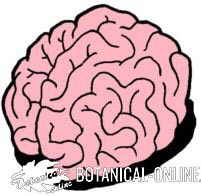Contents
Benefits of taurine for depression, insomnia and anxiety
What functions does taurine have in the brain?
Many people think that taurine has exciting or stimulating properties similar to those of caffeine. Nothing is further from reality. It may be that the publicity of some energy drinks containing added taurine is the cause of this idea, but the truth is that the true properties of taurine for the nervous system are far from these connotations.
Taurine is well known for its central nervous system tonic action and neuroprotective effect.
Effects of taurine on the nervous system

The action of taurine in the nervous system is similar to that of the neurotransmitter GABA (Gamma Aminobutyric Acid). GABA is the main neurotransmitter inhibitor of the nervous system or calming, which also affects the serotonin levels, so that it influences the state of mind. Some researchers even suggest that GABA may have a regulatory effect on the action of taurine. A deficit of GABA is related to states of nervousness, anxiety, depression and insomnia.
Therefore, the effect of taurine, similar to that of GABA, is to promote relaxation and well-being. For this reason, this amino acid is attributed important effects when it comes to reducing anxiety and the symptoms of drug withdrawal crises or attacks of epilepsy.
Is taurine a neurotransmitter?
According to reviews of studies on the subject there is doubt among researchers about whether taurine is, in fact, another type of neurotransmitter, because of its similarity to GABA, its similar distributions in the body, the amount of taurine synthesizing enzymes that are found in the brain and evidence that neurons in the brain respond to the administration of taurine.
However, scientifically, taurine is not classified as a neurotransmitter because it does not meet all the necessary characteristics. Maybe in the future we have more scientific evidence to clarify this point.
Scientific studies on taurine
Research suggests that taurine may have an effect similar to that of GABA, helping to control fear and anxiety when neurons are overexcited (inhibitory effect).
Due to its role on the nervous system, potential effects of this component in the treatment of pain and neuromuscular diseases are being investigated.
How to take taurine for the brain?
Normally, taurine is produced in the body from proteins and pyridoxine (vitamin B6), so it is not necessary to supplement it.
In case of requiring supplementation for any nervous pathology, it can be taken in L-Taurine supplements, 500 mg 1 to 3 times a day (according to medical advice).
If it is required for insomnia, taurine can be taken before bedtime since it will not produce stimulating effects.
![]() More information on taurine
More information on taurine








